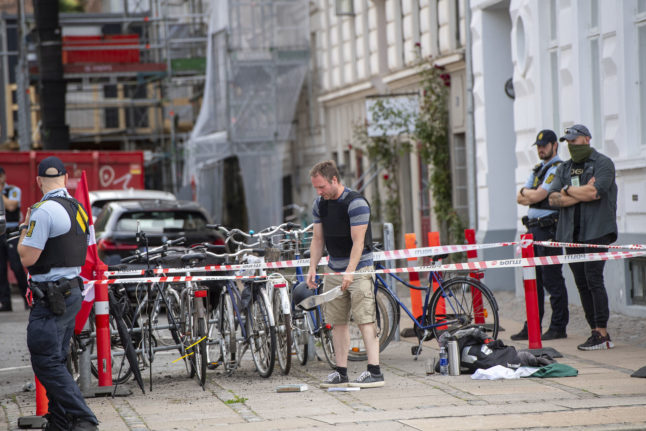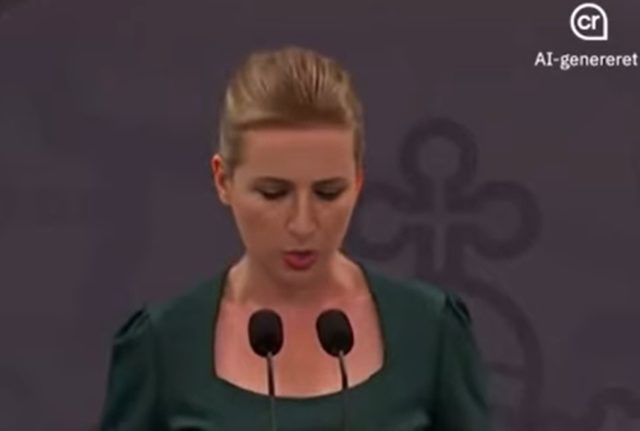What’s been happening?
Recent weeks have seen repeated burnings of the Quran in front of embassies in Stockholm and Copenhagen, provoking anger in Muslim majority countries.
READ ALSO: EXPLAINED: Why are demonstrators in Denmark burning the Quran again?
Wednesday July 19th: During the night, demonstrators stormed the Swedish embassy in Iraq, setting the building on fire and forcing security measures to protect the staff in the building.
The protests were launched after police in Sweden granted permission to The Iraqi activist Salwan Momika to burn a copy of the Quran outside Iraq’s embassy in Stockholm.
Thursday July 20th: Momika carried out his protest in Stockholm, kicking and stamping on a copy of the Quran, but not, in the end, burning it.
Iraqi authorities condemned the burning of the embassy but expelled the Swedish ambassador, in retaliation of Sweden allowing a protest in which the Quran was desecrated.
Friday July 21st: Members of the Danish extreme right group Danske Patrioter posted a video on its Facebook page of a man burning what seemed to be a Quran and trampling an Iraqi flag.
Saturday July 22nd: Around 1,000 protestors marched towards the Danish embassy in Baghdad. These people were supporters of influential Shiite Muslim cleric Moqtada Sadr, who has a following of millions in Iraq. Iraqi security forces dispersed the protestors before they reached the Danish embassy.
It was Sadr’s supporters who had on Wednesday night set alight the Swedish embassy in Baghdad.
Sunday July 23rd: Denmark’s Foreign Ministry released a statement in which is said Denmark “condemns the burning of the Quran.”
“It is a provocative act that hurts many people and creates division between different religions and cultures. Denmark has freedom of religion and many Danish citizens are Muslims. They are a valued part of the Danish population,” the foreign ministry said.
“Denmark underlines that freedom of expression and freedom of assembly must be respected,” it also said, adding “Denmark supports the right to protest but emphasises it must remain peaceful”.
Monday July 24th: A second video posted by the extreme right group Danske Patrioter, again of a man burning what seemed to be a Quran and trampling an Iraqi flag.
Iraq’s foreign ministry issued a statement saying it “strongly condemns, again, the repetition of the burning of a copy of the holy Quran in front of the Iraqi embassy in Denmark.”
Algeria meanwhile said it had summoned the Danish and Swedish envoys to condemn the recent desecrations of the Quran in Copenhagen and Stockholm.
Tuesday July 25th: Danske Patrioter set fire to the Islamic holy book outside the Egyptian and Turkish embassies.
Meanwhile, Denmark’s ambassador to Iran summoned by Tehran in protest at the desecration of the Quran in Copenhagen, the Iranian foreign ministry said on Twitter.
Thursday July 27th: Iran and Iraq set up an emergency meeting with all 57 member states of the Organisation of Islamic Cooperation (OIC) over the Quran burnings in Denmark and Sweden. A spokesperson from the Iranian foreign ministry said the meeting will take place virtually on July 31st.
Meanwhile, Saudi Arabia summoned a Danish diplomat to protest the desecration of the Quran.
Sweden’s government ordered 15 government agencies to strengthen the country’s ability to prevent terrorism, with the Swedish PM saying he was “extremely worried”.
Sunday July 30th:
The Danish government says it will explore legal means of stopping protests involving the burning of holy texts in certain circumstances, citing security concerns following backlash over the recent incidents.
Noting that such protests played into the hands of extremists, the government said it wants to “explore” intervening in situations where “other countries, cultures, and religions are being insulted, and where this could have significant negative consequences for Denmark, not least with regard to security,” it said in a statement from the foreign ministry.
“This must of course be done within the framework of the constitutionally protected freedom of expression and in a manner that does not change the fact
that freedom of expression in Denmark has very broad scope,” it added, stressing it is one of the country’s most important values.
Monday July 31st:
Foreign Minister Lars Løkke Rasmussen speaks to the general secretary of the OIC, Hissein Brahim Taha, in a telephone call ahead of the meeting of the 57 Muslim member states.
The minister stated that his country’s government condemned the insult to the Holy Quran and that the government is investigating this issue with great interest, and stressed that his country is eager to maintain friendly relations and cooperation with the member states of the Islamic Cooperation Organisation,” the IOC said in a statement according to broadcaster DR.
Meanwhile, the government is scheduled to present its further details of how it envisages inteveningin the protests to the other parliamentary parties later on Monday.
Conservative parties have already raised concern about the potential move. Conservative Party leader Søren Pape Poulsen told DR “we are compromising on things that I’m concerned about where they’ll end”.
The protests have continued during the weekend with five burnings at embassies in Copenhagen. Seven more are planned on Monday according to DR.



 Please whitelist us to continue reading.
Please whitelist us to continue reading.
Member comments